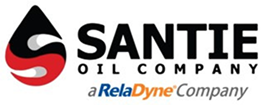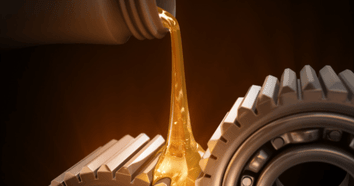Metalworking and cutting fluids are part of your business inventory if stamping and machining are associated with your line of work. Specialty lubricants are extremely important, but it has been reported in an international study recently that only 42% of manufacturing companies are operating with adequate systems to effectively manage industrial lubricants. In addition, 63% of companies have reported that they could do better on staff training with lubricants, particularly with conducting training on a more regular basis. Since today's machinery is so sophisticated, it is important that proper utilization of specialty fluids is implemented. Here are a few mistakes to avoid when using specialty lubricants.
More is Better
Today, correctly engineered grease guns deliver the exact, appropriate amount necessary for the job at task. Previously, automated delivery systems would just lube, lube, lube. However, the idea that you can never have enough lubricant is not exactly ideal for today’s machinery. It can result in clogging and other problems that would damage the mechanism. The combination of preventive maintenance and regular usage is extremely important. Having a well-regulated system of specialty lubricant placement is essential for your machinery to work properly. The safest and most appropriate method to address this matter is to make sure that you arrange to work with a specialist in lubrication delivery systems. This professional will design an application system appropriate for your particular machinery needs.
We’ll Clean It Later On
One of the worst things to do when working with specialty lubricants is to never clean the machinery. This seems to be a pretty common-sense matter, as it addresses the effectiveness of the bearings and the entire lubrication system. The machinery today does not tolerate dirt at all. Handling equipment areas must also be kept very clean. All employees must be familiar with the best practices to be sure that lubricant reservoirs and delivery guns and devices are always spotlessly clean. Only then, will this fine-tuned machine will work as it is designed to work and deliver the results that are expected from it. In addition, the entire machinery area should always be kept clean, since it will also impact the health and well-being of employees.
Any Grease Is Good Grease
It may have been true early in the days of manufacturing that "grease was grease and oil was oil," but today things are much more sophisticated. Advancements have been made in engineering, science, manufacturing, and the chemical industry--all of which impact the use of specialty lubricants. One thing to avoid especially is cross-contamination. Temperature is also a factor. Warmer temperatures require thicker specialty lubricants, and colder temperatures require less viscosity. Mixing lubricants also has to be done very carefully so as to not risk damaging any of the bearings. And remember that lubricants all differ, especially in terms of being chemically compatible. If there is any doubt, it is always a wise idea to contact a lubrication consultant or supplier to provide an assessment.
Today, machinery is extremely complex and sophisticated compared to the past. Likewise, today’s specialty lubricants are much more sophisticated than those used earlier times in the manufacturing world. Previously, lubrication was just used on extremely heavy machinery and much simpler in chemical design. But today we know more and much progress has been made. Proper utilization of procedures and specialty fluids will play a major role in making sure that you deliver a successful product to your customer, and that you protect your machinery, as well.

